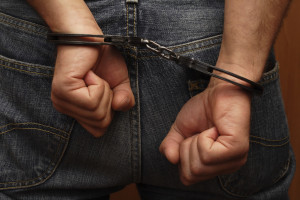
People who are charged with a crime can be held responsible by the law and face the repercussions of their actions. It is important to know that this is the case for anyone, regardless of their age. What may change dependent upon age is how the cases are handled. When a juvenile is charged with a crime, they are still held accountable even though they are not adults. However, these cases are handled differently than that of adults. When dealing with these cases, it is important to retain the services of an experienced New York criminal defense attorney for assistance.
How are Juveniles Classified?
In the state of New York, juveniles include all those between the ages of 7 years old and 16 years old. When a child is considered a “juvenile delinquent,” it means that they require supervision, treatment, or confinement. This classification can also be attributed to the child’s mental state. It is important to know that all juveniles must have legal representation while they are in court. The attorney is present to represent their best interests. If a child’s parents or guardians cannot afford to provide an attorney, the court may provide support. Any individuals over the age of 16 years old will be tried as an adult.
What is the Process of a Juvenile Case?
In New York, all juvenile cases are heard in Family Court instead of Criminal or Municipal Court like other cases. The case begins when a prosecutor files a petition against the child, describing the acts they are accused of committing. These cases are referred to as a “fact-finding hearing.” They are similar to criminal trials without an existing jury.
During a juvenile delinquency case trial, a judge will assess the situation to determine whether a child committed the crime or not. This determination is made based on the evidence presented during the trial by both parties. If the judge believes there is substantial evidence to prove the crime was committed by the juvenile in question, the court will then schedule a dispositional hearing. The court will also order the Probation Department to investigate the juvenile’s behavior both at home and school, as well as a possible mental evaluation.
Until the dispositional hearing takes place, the juvenile can be detained or released to their guardians. It is at the hearing where the juvenile may be sentenced as a delinquent and it is determined whether they need supervision, treatment, or confinement. It is also possible to be released to a guardian with or without court supervision.
Can a Juvenile be Tried as an Adult?
It is important to know that if a child is 16 years or younger and commits a serious crime or violent act, they may be tried as an adult. This may be in the event of crimes such as murder, assault, rape, armed robbery, etc. When this happens, they may be waived up to the criminal court and tried the same way an adult would be. This decision can be made by the prosecutor’s office and the juvenile judge.
Contact our Firm
If you or someone you know is going through a juvenile case and wishes to speak with an experienced attorney, contact Grunwald & Seman, P.C. to schedule a consultation and we would be happy to assist you.
